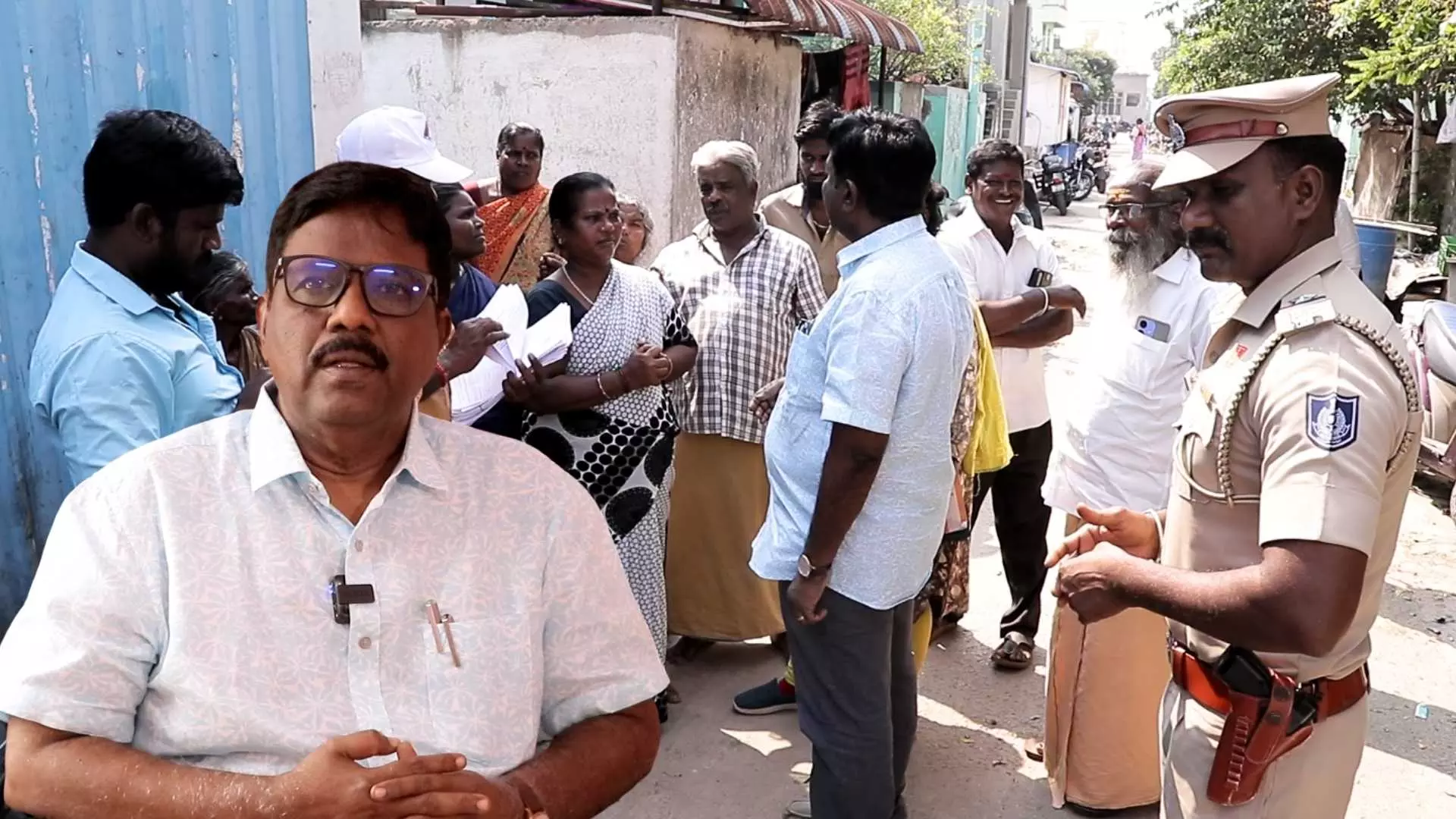
EC’s SIR drive ahead of 2026 TN polls triggers confusion, exclusion fears
Voters confused over certain details in SIR form; VCK MP Ravikumar alleges exercise is linked to NRC and targets marginalised communities

The Election Commission (EC) has launched the second phase of the Special Intensive Revision (SIR) drive across 12 states, including Tamil Nadu, ahead of the 2026 Assembly elections. The campaign, aimed at updating electoral rolls, has triggered mixed reactions on the ground.
In Villupuram district—comprising seven Assembly segments and one Lok Sabha constituency—many voters expressed confusion over the process. Residents said they had not received the forms or lacked clarity on how to fill them. Elderly and single residents, in particular, found it difficult to provide family details required in the SIR form.
Also read: SC tells EC to respond within 2 weeks to petitions against SIR in TN, Bengal
A 60-year-old voter in Villupuram said she was unable to complete her form as it asked for the details of her late husband and parents. “My son and daughter-in-law are away for work. I don’t know how to fill all the forms,” she said.
Ground challenges and party response
Villupuram MP Ravikumar from the Viduthalai Chiruthaigal Katchi (VCK) highlighted the challenges faced by marginalized communities. “Our party wants to be the voice of the oppressed. We have prepared identity cards for our Booth Level Agents (BLAs) to help people fill the SIR forms,” he said.
He added that volunteers were assisting voters in rural and tribal areas to ensure their details were correctly entered into the EC website. “People must understand this is not just about voter ID. It’s linked to citizenship. If you lose your vote, your citizenship will be questioned,” Ravikumar warned.
Also read: Mamata Banerjee calls SIR 'votebandi', urges EC to stop voter roll revision
However, he claimed that the SIR process was riddled with inconsistencies and lacked sufficient time for completion. “They started the exercise only on November 4 and gave just 30 days. This is not enough to make it fool-proof,” he said.
Allegations of exclusion
Opposition parties, including the VCK, have alleged that the SIR could lead to the disenfranchisement of genuine voters, particularly from socially vulnerable and marginalized communities. Ravikumar said, “It’s not about winning or losing an election—it’s about losing citizenship. The entire SIR exercise is indirectly connected with the NRC.”
He further alleged that migrant workers were particularly at risk of being excluded. Many families from Villupuram, he said, had migrated to Maharashtra, Odisha, and Delhi for work. “During the pandemic, we organized special trains to bring them back. Now we are worried about a different kind of virus—the SIR—that is spreading across the nation,” he remarked.
EC’s role questioned
Ravikumar accused the EC of acting under political pressure, citing lack of transparency in voter verification. “The Election Commission is spreading lies. They are serving their masters, not the Constitution,” he said, alleging that the institution had been weakened by recent legal changes granting immunity to Election Commissioners.
Also read: SIR a bid to institutionalise 'vote theft', claims Rahul Gandhi
He added, “Even the Prime Minister doesn’t have such immunity. Why should the Election Commission have it? The ruling government wants to use the Commission for its own benefit.”
The MP also pointed out that only recognized political parties could appoint Booth Level Agents, calling it discriminatory. “This creates an imbalance between national and regional parties,” he said.
Impact on vulnerable communities
Ravikumar warned that the SIR process could disproportionately affect tribal and nomadic communities in Villupuram. “Tribal groups like Irula and other nomadic tribes do not have land or community certificates. Without these, they can’t prove their identity,” he said.
Also read: West Bengal 'SIR deaths' spark political storm: TMC, BJP trade charges
He argued that the process, while presented as a voter list update, was being used to exclude marginalized groups. “They are not implementing the Constitution; they are implementing the law of Manu. The BJP’s approach is exclusionary—it denies the poor, the OBCs, SCs, STs, and minorities their rights,” he asserted.
Comparing the SIR to the National Education Policy (NEP), Ravikumar said both share a pattern of exclusion. “After NEP, two crore students dropped out of the education system. Now, crores of voters may be excluded from the electoral rolls,” he cautioned.
A battle for inclusion
Despite reassurances from the ruling BJP and its allies that the SIR process will not eliminate eligible voters, Ravikumar maintained that the exercise lacked transparency and intent. “In Bihar, 81 lakh voters were left out after SIR. In Tamil Nadu, nearly one crore could face the same fate,” he claimed.
Also read: Petition against SIR in TN has two core points, illegality and impracticability: NR Ilango
“The Constitution stands for inclusivity. But what we see today is exclusion on a mass scale,” he concluded.
(The content above has been transcribed from video using a fine-tuned AI model. To ensure accuracy, quality, and editorial integrity, we employ a Human-In-The-Loop (HITL) process. While AI assists in creating the initial draft, our experienced editorial team carefully reviews, edits, and refines the content before publication. At The Federal, we combine the efficiency of AI with the expertise of human editors to deliver reliable and insightful journalism.)

